Knowledge Repository.
Learn more about our services, methodologies, past projects and who we are.
Brand Strategy Research Toolkit

Brand Strategy Research Toolkit
A curated roadmap brand strategists can use to guide their clients to the right methodology based on their strategic question alone. View DetailsReformation Audience Research

Reformation Audience Research
How Gradient uncovered the mindsets and preferences of Reformation’s customer segments, along with identifying their total addressable market. View DetailsUnraveling the Oatly Brand
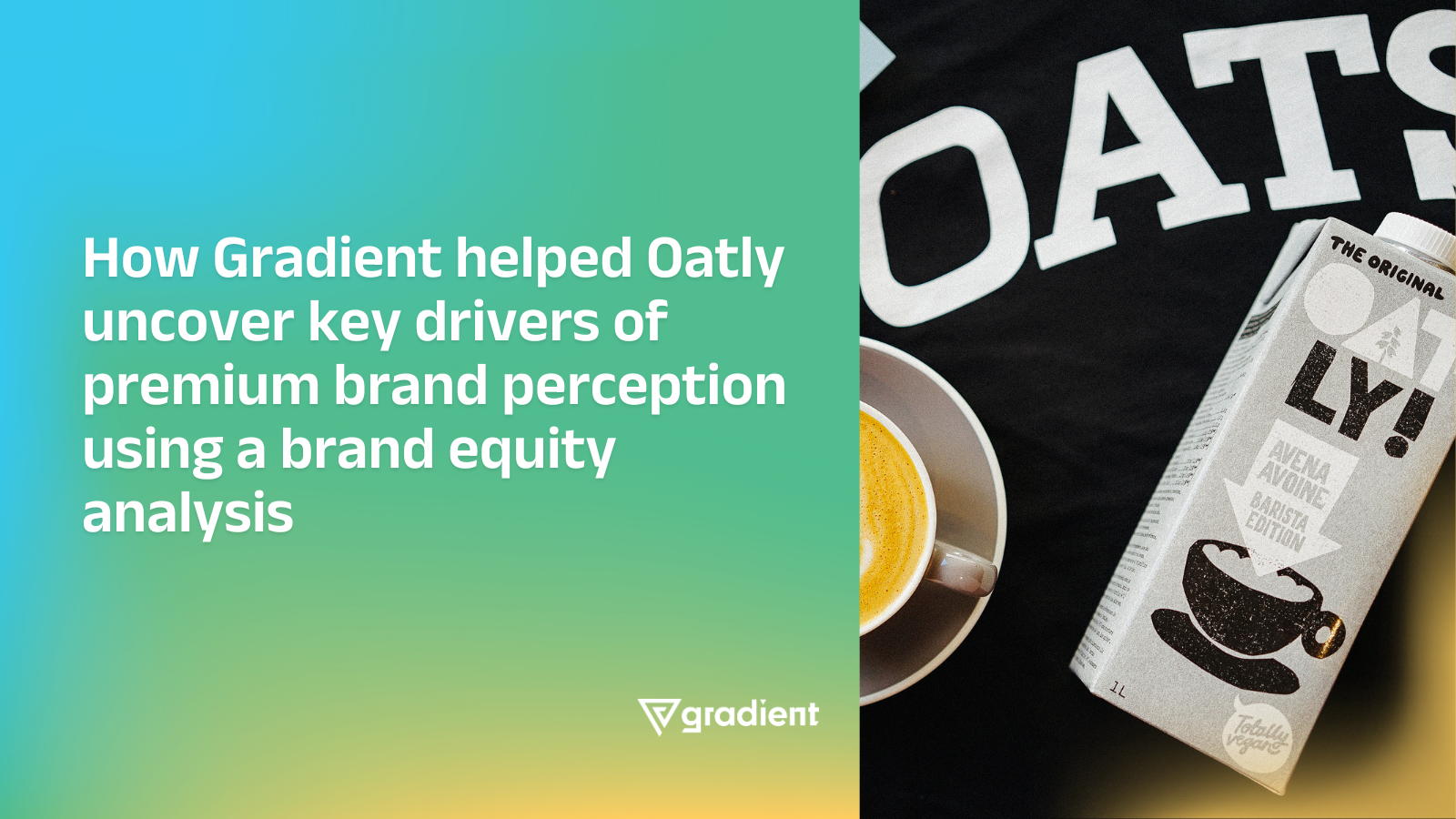
Unraveling the Oatly Brand
How Gradient helped Oatly uncover key drivers of premium brand perception using a brand equity analysis. View DetailsThe Social Pressure Index
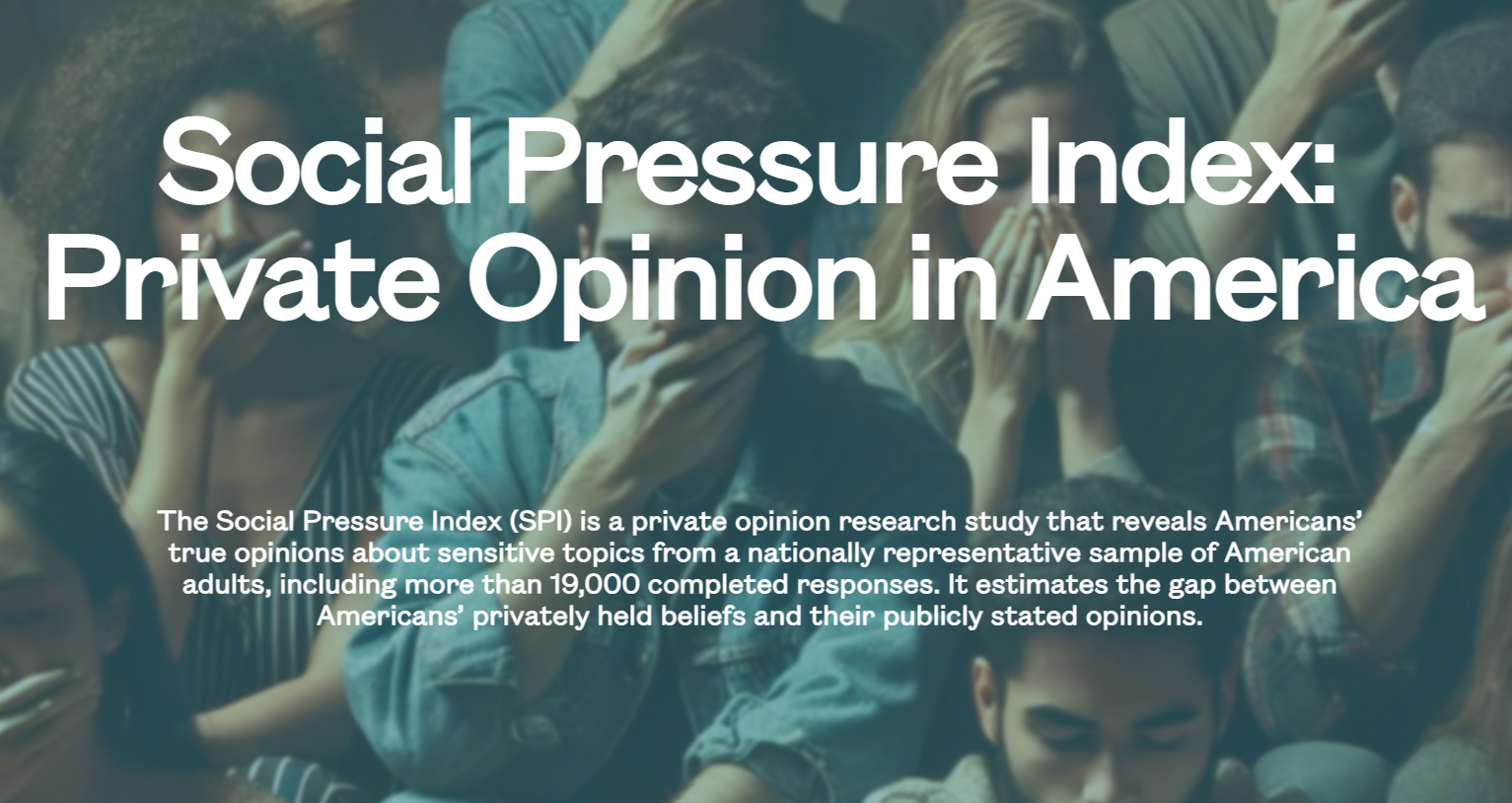
The Social Pressure Index
Together with non-partisan think tank Populace, the Social Pressure Index is the culmination of research using Gradient's sophisticated private opinion methodology.
The Social Pressure Index reveals the topics where Americans are most likely to self-censor their deeply held beliefs on socially sensitive issues.
View DetailsValue Driven Data Science
.png)
Value Driven Data Science
Check out our Head of Research, Kyle Block, chatting with Dr. Genevieve Hayes about efficient survey design on her podcast, "Value Driven Data Science." View DetailsThe Patriotic Sorting Hat
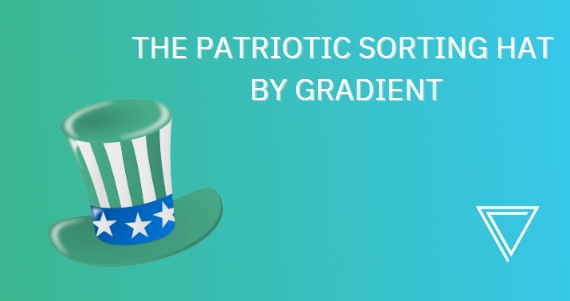
The Patriotic Sorting Hat
Take our Patriotic Sorting Hat quiz and see where you fall on the spectrum of mindsets toward American democracy.
View DetailsWith Qualtrics Value Advisory: How to Optimize Your Research to Navigate Business Uncertainty

With Qualtrics Value Advisory: How to Optimize Your Research to Navigate Business Uncertainty
Many businesses choose to deal with uncertainty through inaction and cost cutting, when there's actually never been a better time to invest in research. Gradient's founder Tom Vladeck partnered with Qualtrics to explain why, when uncertainty is high, organizations should take advantage of the greater payoff of market research efforts.
View DetailsList Experiments

List Experiments
A list experiment (also called the item-count technique) is a method for indirectly measuring private opinion for issues where individuals might otherwise be likely to publicly withhold their true opinion.
View DetailsRandomized Control Trial: Immigration Reform Message Testing

Randomized Control Trial: Immigration Reform Message Testing
The goals of Project Rhapsody were two-fold; (1) prototype and validate a method for cost-effective field testing of targeted message campaigns and (2) understanding message frames that are most effective for persuading the moderate conservative segment on issues related to comprehensive immigration reform.View Details
Gradient's Survey Design Process

Gradient's Survey Design Process
We’ve developed a streamlined quantitative and qualitative data collection process that takes as input the decision to be made and outputs quantitative or qualitative data points to guide your decision.
View DetailsPopulace Insights: American Priorities For Higher Education

Populace Insights: American Priorities For Higher Education
A national private opinion quantitative survey that surfaces the decisionmaking factors that matter most for Americans in choosing a higher education experience. It was conducted by the think tank Populace and powered by Gradient Metrics.
View DetailsConjoint Experiments

Conjoint Experiments
Choice-based conjoint analysis is a technique for quantifying how the attributes of products and services affect their preference. It is typically used to help decision makers identify the optimal design of products and pricing.
View DetailsSurvey-based Experiments

Survey-based Experiments
We've seen it all too often — you run a survey, get an "interesting" dataset, spend weeks poring over crosstabs, get lost in the deluge, and exit the engagement as confused as ever. With Gradient's experimental design services, we design a research study that will deliver definitive answers about what you should do next.
View DetailsCustomer Lifetime Value Modeling

Customer Lifetime Value Modeling
Learn who your most valuable customers actually are and how much they’re worth to your business over the long-run.
View DetailsMaxDiff Experiments

MaxDiff Experiments
Learn the trade-offs that your consumers of interest make. Which attributes are least and most important to them?
View DetailsThe Success Index

The Success Index
The choice-based conjoint (CBC) approach used in this study was developed for Populace by Gradient Metrics.
View DetailsAmericans believe universities are heading in the "wrong direction"

Americans believe universities are heading in the "wrong direction"
Americans are looking for a post-coronavirus overhaul at colleges and universities that would include reduced costs and better job placement for graduates, according to a report from think tank Populace.
View DetailsBrand Metrics Development
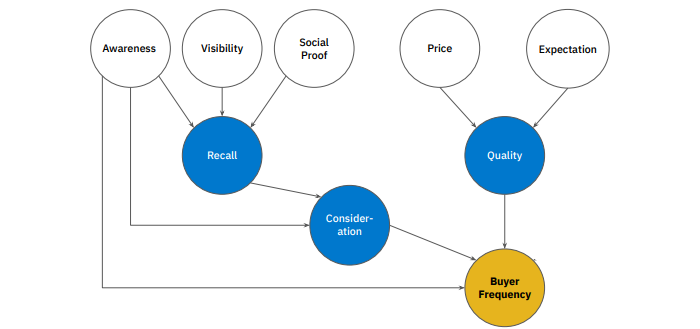
Brand Metrics Development
We use a statistical practice called structural equation modeling to build deep, meaningful, KPIs for your brand. We break apart a big-picture into multiple models to understand how dots in your business connect.
View DetailsBrand Tracker
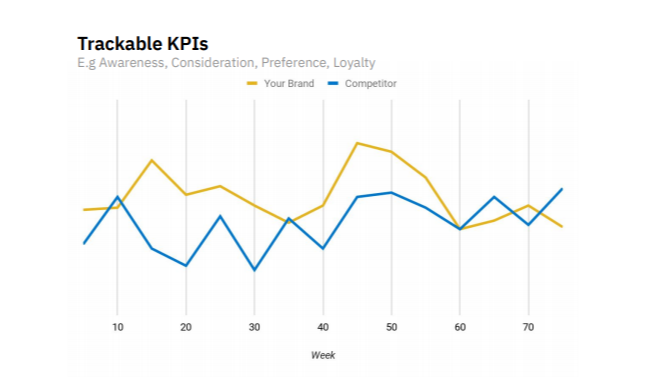
Brand Tracker
Stay on the pulse of changing market conditions with Gradient’s brand tracking services
View DetailsNew poll finds Fox News viewers think the coronavirus threat is exaggerated

New poll finds Fox News viewers think the coronavirus threat is exaggerated
A new national poll from Survey 160 and Gradient Metrics sheds some disturbing light on this question — showing that Fox viewers are much less likely to take the pandemic seriously even as compared to other Republicans.
View DetailsRed vs. Blue on Coronavirus Concern: The Gap Is Still Big but Closing

Red vs. Blue on Coronavirus Concern: The Gap Is Still Big but Closing
A national poll conducted by Survey 160 and Gradient Metrics, which oversampled Washington State residents, found that Republicans there were much less likely than Republicans nationally to say the crisis had been exaggerated by the media.
View DetailsEven the coronavirus crisis can’t bridge America’s partisan divide

Even the coronavirus crisis can’t bridge America’s partisan divide
In Washington state, one of the worst-hit states, a poll taken by Survey 160 and Gradient Metrics found 49% of Republicans and 12% of Democrats said the crisis was generally exaggerated.
View DetailsThe Vulnerability of Biden (and Bernie)
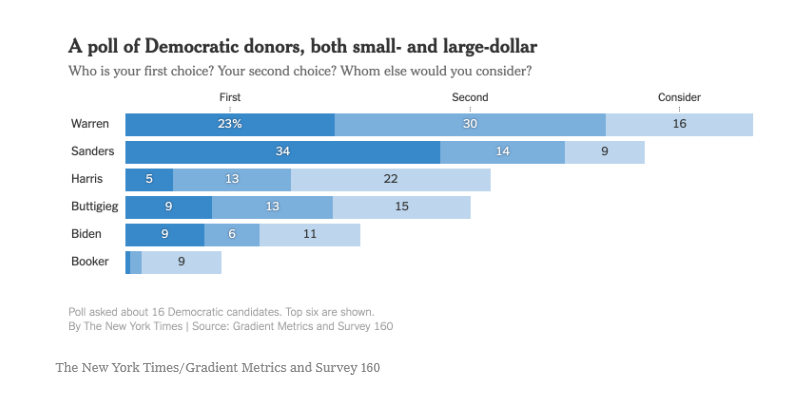
The Vulnerability of Biden (and Bernie)
For these reasons, two research firms — Gradient Metrics and Survey 160 — recently asked Democratic donors from the 2016 campaign, many of whom are giving money again in this cycle, what they thought of the 2020 candidates. The results, which haven’t been publicly released until now, are fascinating.
View Details
